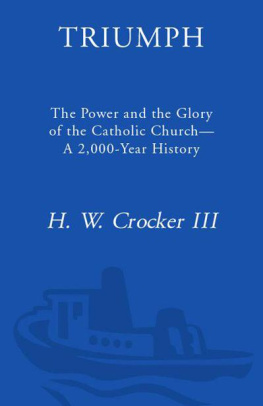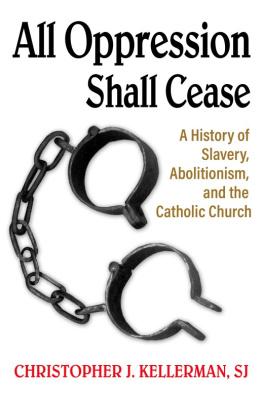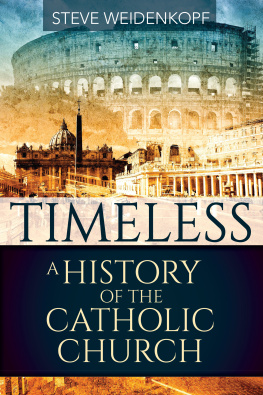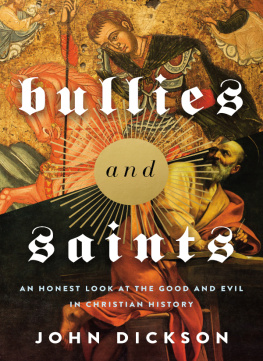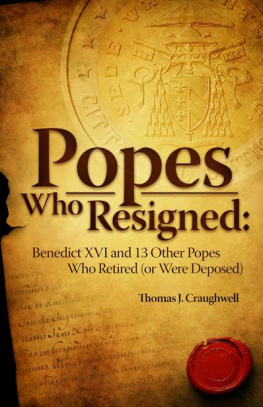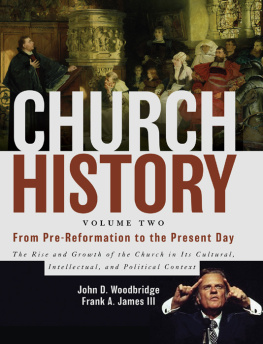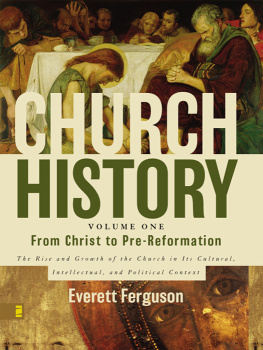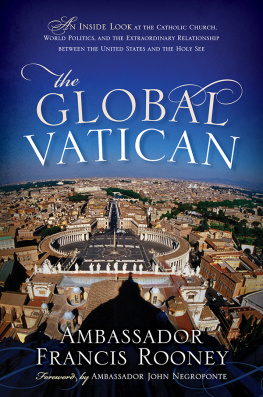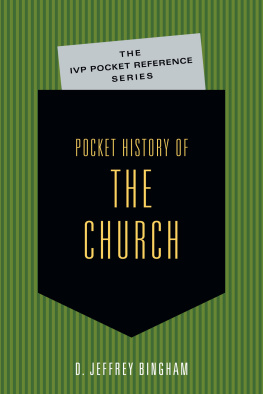PRAISE FOR
Triumph
I am still scratching my head over how he did it, but in Triumph Crocker has told 2,000 years of Catholic history in fewer than 500 highly readable pages. The book has all the virtues of a good novel while packing an enormous amount of information. Not since Paul Johnson's Modern Times has edification been this pleasurableand I ought to add that this book is superior to Johnson's own A History of Christianity A substantive history of the Church that goes down as smoothly as summer beach reading.
G EORGE S IM J OHNSTON , Crisis Magazine
It crackles with excitement and tells the Church's story accurately (and in an orthodox manner) A history of Catholicism that pulls no punches and never loses its wonder at the glory and splendor of the Faith.
New Oxford Review
Written in a breezy style, this sweeping chronicle effectively condenses and communicates the intricate history of one of the world's most complex and intriguing institutions Epic in scope and featuring a vividly drawn cast of saints, sinners, and martyrs, this eminently readable account provides a compelling overview of the often controversial history of Catholicism.
Booklist
Harry Crocker has written the best short history of the Church in English since the Second Vatican Council. The clear, breezy prose written in a novelistic style makes an unapologetic apologetic for the claim of the Catholic Church to be truly one, holy, catholic, and apostolic. It is the ideal introduction for the neophyte who wants to learn the history of the Church in all its divine splendor, without ignoring the failings of its human element. In short, a triumph.
F R . C. J. M C C LOSKEY III, director, Catholic Information Center
H. W. Crocker III has indeed brought about a triumph with his concise and informative history. Here is a book for the general reader that provides a grand view of the Church's progress through time. Triumph is a book that will strengthen the faith of Catholics and give others an exciting and complete account of the two millennia of the Catholic Church. Magnificent!
R ALPH M C I NERNY , Michael P. Grace Professor of Medieval
Studies, University of Notre Dame, and author of the
Father Dowling mysteries
A biting, unapologetic romp through Catholic history that debunks some long-held myths and celebrates the glory of the Catholic faith. A much-needed triumph.
R AYMOND A RROYO , EWTN news director and host of
The World Over
Enough of the whimpering and whining. In this ramble through two millennia, Catholicism is a fighting faith, and triumphalism is its way of being in the world Triumph is an invigorating tale that will likely be welcomed by readers who are weary of being told that defeatism is a virtue.
First Things
H. W. Crocker's 2,000-year history of the Catholic Church reads like an old-fashioned hero epic This is a book that should be in the home of every Catholic and anyone interested in the undeniably unique and freedom-loving heritage of European civilization.
R YAN M C M AKEN , LewRockwell.com
He pulls no punches, suffers no fools, and is not afraid to pepper his text with a series of outrageous quips that stay with the reader long after the book has been set down. Here is history written in the fightin Chesterbelloc spirit.
St. Austin Review
A great history The crispness of Crocker's prose and the sharpness of his polemic make clear that he took great enjoyment in his task and that he undertook it for the glory of the Church Although its subject is not as broad, one hopes it will replace Paul Johnson's abysmal A History of Christianity as one of the standard single-volume studies to which people refer If you've been meaning to get around to reading about the history of the Church, here is your chance.
The Latin Mass
H. W. Crocker III has written an unconventional one-volume history of the Catholic Church in a contemporary and often provocative style. The result is entertaining [and] some chapters in Triumph are brilliant literary achievements, worthy of a Waugh or a Belloc. And unlike many nominally Catholic academics who have attempted to revise history since Vatican II, the author is on the Church's side, with flying colors.
Homiletic & Pastoral Reviews
H. W. Crocker's rousing history of the Catholic Church may anger or irritate some readers, but they will never complain of boredom. Crocker writes in a swashbuckling style about popes good and bad, shows us the tragedy of the Reformation, and tells us much about the history of Western Europe in the bargain.
Smoky Mountain News
Crocker is never one to shrink from a fight, and his proselight, brisk, intelligent, and wittyis up to the challenge. Breezily politically incorrect, he defends throughout his book the proposition that Christianity is not just another chapter in the major world religions textbook, but has a unique place in world history and human thought. Everywhere the Church advances, from Ireland and Germany to Peru and Mexico, Crocker shows how civilization advanced as well and, conversely, wherever societies have turned away from the Church, Crocker is there to detail the concomitant lapse into barbarism Triumph is a call to Catholics to recall what their Church has given to the world and to take up the fight anew against the forces of darkness, within and without.
R OBERT S PENCER , author of Islam Unveiled
triumph
The Power and the Glory
of the Catholic Church
A 2,000-Year History
For my family
The principles are settled. Life is the pageant of men and women living up to them or failing to live up to themand I think that today, if we are to save ourselves, we need to close our minds, to take honour's worth for granted and to escape back into certainty from the atmosphere of eternal questioning.
CHRISTOPHER HOLLIS , Death of a Gentleman
CONTENTS
18 Revolution
PROLOGUE
I N HOC SIGNO VINCES
A.D . 312
P ERHAPS THE LEGIONS had grown overconfident. Their Augustus, the swift-moving Constantine, had led them over the Alps and, as he had done against the Picts, the Franks, and other enemies of the empire, now led them to victory after victory in a civil warcivil war being practically a tradition these daysrolling up armies loyal to Maxentius, the young, decadent usurper in Rome.
Maxentius had risen to power by promising to keep Rome free of taxes and had kept power by seeing off the mightiest of armieswhether led by Caesar Severus or by the emperors Galerius and Domitius Alexander. He had even faced down his own father, the former emperor Maximian, and the greatest of recent emperors, Diocletian, who had divided the responsibilities of the empire, only to have Maxentius seize its capital city.
Yet now, on a path parallel to the River Po, Constantine's legions had thrown back Maxentius's armies again and again, smashing his shock troops, the heavily armored cavalry known as the katafraktoi. Constantine had a plan to neutralize them. His infantry trapped them in a pocket of legionnaires, where the horses could neither maneuver nor charge; then the foot soldiers, holding four-foot-high shields close to their helmets, slashed at the horses unprotected fetlocks. The steel-encased cavalrymen were hurled to the ground, where Constantine's men butchered them.

